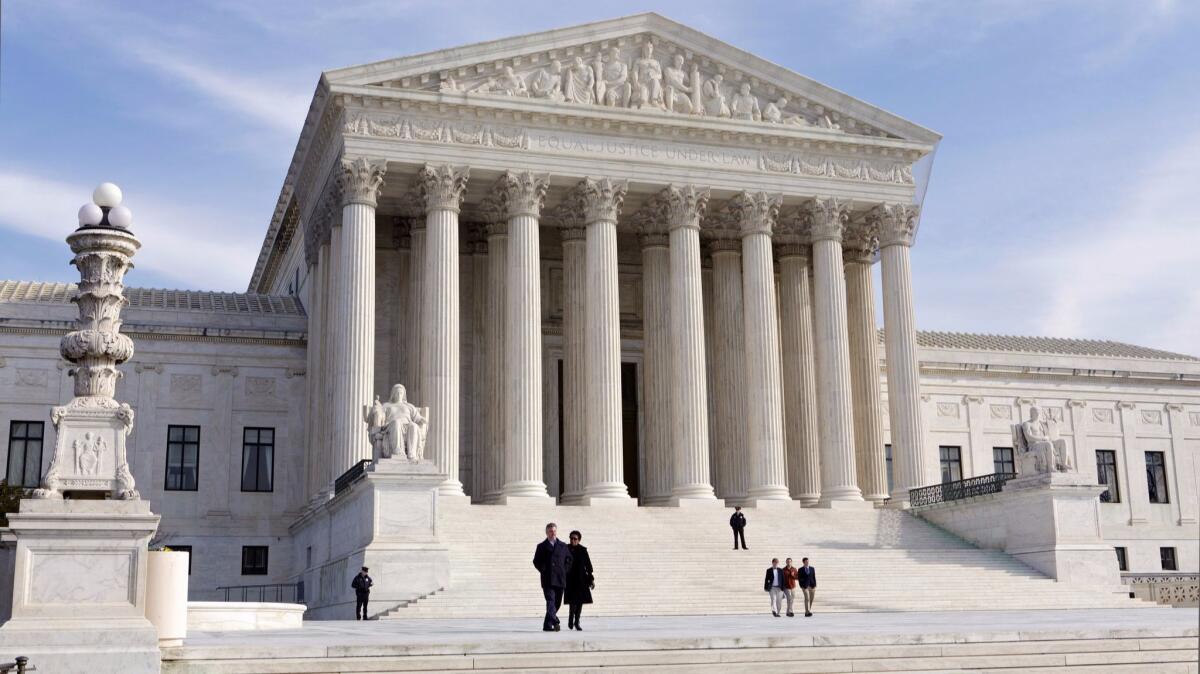Supreme Court decision strengthens rights for schoolchildren with disabilities, rejecting a lower standard set by Gorsuch

Reporting from Washington — A unanimous Supreme Court strengthened the rights of nearly 7 million schoolchildren with disabilities Wednesday, and did so by rejecting a lower standard set by Judge Neil Gorsuch.
The ruling, one of the most important of this term, came as President Trump’s Supreme Court nominee is wrapping up his third day of testimony before a Senate committee.
Justices ruled for the parents of Endrew F., a Colorado boy with autism who pulled their son from the public school after his progress “essentially stalled.”
They enrolled him in a private academy that specialized in autism, where his behavior and learning improved markedly. They then sued the school district for reimbursement, alleging a violation of the federal law which promises a “free appropriate public education” to children with disabilities.
Chief Justice John G. Roberts Jr. said the school district had not met its duty under the law. Children like Endrew F. have a right to an “educational program that is reasonably calculated to enable [them] to make progress,” he said. And the learning program “must be appropriately ambitious in light of” the child’s capabilities.
This stand “is markedly more demanding than the ‘merely more than de minimus’ test applied by the 10th Circuit,’” he said, including in a 2008 opinion written by Gorsuch. Under that standard, a school need only show that it was providing a minimal special program with some level of benefit.
The high court did not mention Gorsuch’s opinion in the earlier case, but it reversed a 10th Circuit ruling which had relied on it.
Asked about the issue on Wednesday, Gorsuch said he was a part of a unanimous three-judge panel that had sought to follow a Supreme Court standard set in the 1982.
Several liberal groups described the court’s decision as a direct rebuke of Gorsuch.
However, Senate Judiciary Committee Chairman Charles E. Grassley (R-Iowa) noted that Gorusch was not part of the three-judge panel whose ruling was directly reversed in the court’s decision in Endrew F. vs. Douglas County.
Trump’s victory assures a conservative majority on the Supreme Court. »
For the 4th time, the Electoral College picks the loser of the popular vote. »
On Twitter: DavidGSavage
ALSO:
Can Trump put another Justice Scalia on the Supreme Court?
More to Read
Get the L.A. Times Politics newsletter
Deeply reported insights into legislation, politics and policy from Sacramento, Washington and beyond. In your inbox three times per week.
You may occasionally receive promotional content from the Los Angeles Times.










